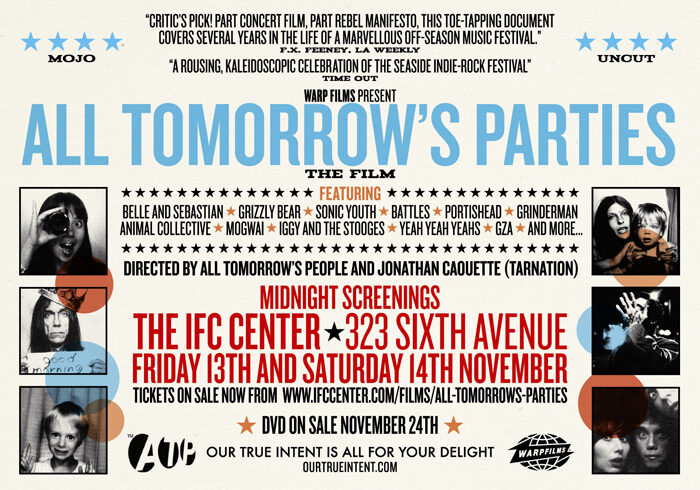Introduction
Have you ever come across the phrase “All Tomorrow’s Parties” and wondered what it really means? This intriguing phrase has permeated various facets of culture, from music to literature, and even into our everyday lives. But where did it come from, and why does it resonate so deeply with so many people?
Historical Context
To truly grasp the meaning behind “All Tomorrow’s Parties,” we need to start with its origins. The phrase first gained prominence in the mid-20th century, appearing in various forms of literature and art. It captures a sense of anticipation and reflection, looking forward to the unknown future while pondering the experiences of the past.
Musical Influence
One of the most significant boosts to the phrase’s popularity came from The Velvet Underground. Their song “All Tomorrow’s Parties,” released in 1966, became an anthem for the counterculture movement. Lou Reed’s melancholic lyrics and the band’s avant-garde sound encapsulated the yearning and uncertainty of the era. This song not only left an indelible mark on the music industry but also cemented the phrase in the cultural lexicon.
Literary References
Beyond music, “All Tomorrow’s Parties” has made its mark in literature. Writers have used it to evoke a sense of temporal tension and existential questioning. The phrase often appears in works that explore the human condition, the passage of time, and the fleeting nature of happiness.
Cultural Impact
The phrase “All Tomorrow’s Parties” has been adopted by various subcultures over the decades. It has influenced fashion, with its evocation of a bohemian lifestyle, and has been a touchstone for movements that embrace a free-spirited, unconventional approach to life. Its imagery can be seen in everything from festival names to art installations.
Symbolism and Interpretation
At its core, “All Tomorrow’s Parties” is laden with symbolism. It represents the endless possibilities and uncertainties that the future holds. Some interpret it as a reflection on the transient nature of joy and the inevitability of change. Others see it as a celebration of potential and the promise of new experiences.
In Modern Media
The phrase continues to appear in modern media, underscoring its enduring appeal. Films and television shows often use it to set a tone of introspection and anticipation. Modern musicians also reference it, paying homage to its rich cultural history and its resonance with themes of hope and despair.
Philosophical Perspectives
Philosophically, “All Tomorrow’s Parties” delves into existential themes. It touches on the human desire to find meaning in the future while grappling with the reality of the present. This duality is a common thread in existentialist thought, reflecting the tension between what is and what could be.
Artistic Representations
The visual arts have also been inspired by “All Tomorrow’s Parties.” Artists have created works that embody the phrase’s essence, exploring themes of temporality and expectation. Notable exhibitions have featured pieces that capture the bittersweet anticipation of what tomorrow might bring.
Psychological Aspects
On a psychological level, “All Tomorrow’s Parties” resonates with our intrinsic need to look forward and plan for the future. It ties into concepts of nostalgia and aspiration, highlighting the emotional interplay between our past experiences and future hopes.
Social Commentary
The phrase also serves as a lens through which we can examine societal issues. It prompts reflection on how we view progress and change, critiquing contemporary issues such as consumerism, environmental degradation, and social inequality. It challenges us to consider what kind of future we are creating.
Personal Reflections
For many individuals, “All Tomorrow’s Parties” holds personal significance. It can represent moments of change, pivotal decisions, and the excitement of new beginnings. Personal anecdotes often reveal how this phrase has inspired introspection and growth.
Global Perspectives
Interestingly, “All Tomorrow’s Parties” transcends cultural boundaries. Different cultures interpret it in various ways, yet the underlying themes of anticipation and reflection remain consistent. This cross-cultural significance underscores the universal human experience of looking towards the future.
Contemporary Relevance
In today’s fast-paced world, “All Tomorrow’s Parties” is more relevant than ever. It speaks to the collective anxiety and hope that characterize modern life. As we navigate an ever-changing landscape, the phrase reminds us of the importance of balance between enjoying the present and preparing for the future.
Conclusion
“All Tomorrow’s Parties” is a phrase rich with meaning and layered with cultural, philosophical, and personal significance. It invites us to ponder the future while reflecting on the past, encapsulating a timeless human experience. As we continue to explore its depths, it remains a poignant reminder of the endless possibilities that lie ahead.
FAQs
What is the origin of the phrase “All Tomorrow’s Parties”?
The phrase gained prominence in the mid-20th century and was popularized by The Velvet Underground’s song of the same name.
How has “All Tomorrow’s Parties” influenced popular culture?
It has impacted music, literature, fashion, and various subcultures, becoming a symbol of anticipation and reflection.
What are some common interpretations of “All Tomorrow’s Parties”?
The phrase is often seen as a reflection on the transient nature of joy and the promise of new experiences, symbolizing the endless possibilities of the future.
Why does “All Tomorrow’s Parties” resonate with so many people?
Its themes of anticipation, change, and existential reflection are universal, appealing to our innate curiosity and hope for the future.
How is “All Tomorrow’s Parties” relevant today?
In a rapidly changing world, it speaks to our collective anxiety and hope, reminding us to balance enjoying the present with preparing for the future.







